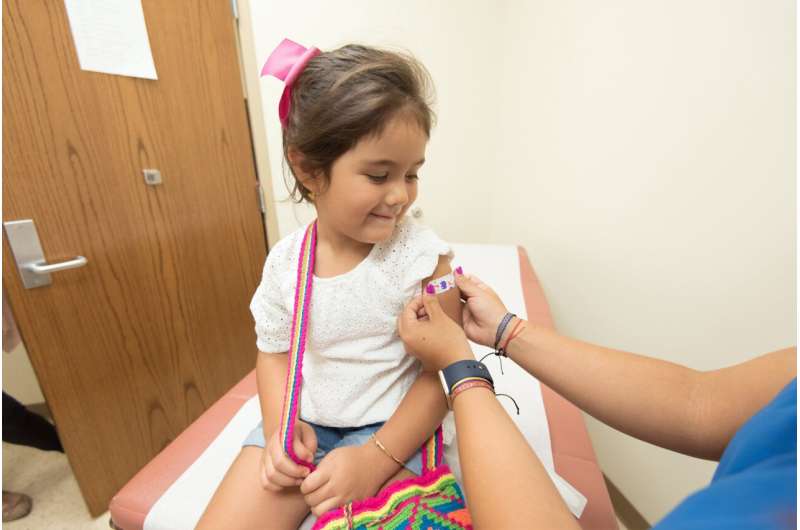This article has been reviewed according to Science X's editorial process and policies. Editors have highlighted the following attributes while ensuring the content's credibility:
fact-checked
peer-reviewed publication
trusted source
proofread
Mental health services as part of pediatric primary care improves mental health care engagement for children

New research led by Boston Medical Center and Boston University School of Public Health has found that integrating mental health services into pediatric primary care at federally qualified health centers (FQHCs) can improve access to and engagement in mental health care for Medicaid-enrolled children. This research compared healthcare utilization, psychotropic medication use, and follow-up care among Medicaid-enrolled children aged 3 to 17 years at FQHCs that had implemented a model of mental health integration known as TEAM UP for Children to FQHCs that had not implemented the model.
Published in JAMA Network Open, this research offers the strongest evidence to date that this model of integrated mental health services can improve access to care.
TEAM UP for Children—Transforming and Expanding Access to Mental Health Care in Urban Pediatrics—is a pediatric integrated behavioral health initiative co-developed by Boston Medical Center and seven FQHCs designed to improve access to high-quality, evidence-based, behavioral health care in historically marginalized communities. In these health centers, where 74% of the patient population is from a racial and/or ethnic minoritized group, 37% are best served in a language other than English, and 67% live at or below 100% of the federal poverty level, TEAM UP has created a sustainable, adaptable, and replicable model that strengthens pediatric primary care.
"Children—particularly low-income children enrolled in Medicaid—face significant barriers in accessing mental health services. Even when they are linked to services, treatment is often significantly delayed or inadequate," said senior and corresponding author Megan B. Cole, Ph.D., MPH, Department of Health, Law, Policy, and Management, Boston University School of Public Health. "The TEAM UP model aims to address this challenge by fully integrating mental health services into primary care at FQHCs, where low-income children regularly access care."
The study, which included 20,170 Medicaid-enrolled children served by FQHCs in Massachusetts, found that after 1.5 years of implementation, children receiving care at FQHCs with mental health integration had relative increases in mental health-related primary care visits and mental health service use. Despite increases in mental health care engagement, psychotropic medication use did not increase.
The researchers hope their findings will encourage more FQHCs to integrate mental health services into their pediatric primary care practices.
According to Cole, "These results suggest that expanding the TEAM UP model of care to other FQHCs may help address inequities in pediatric mental health care access."
This study also "highlights the importance of addressing the unmet needs of low-income families when accessing mental health services," notes co-author Megan Bair-Merritt, MD, MSCE, Chief Scientific Officer at Boston Medical Center. "Integrating mental health services into pediatric primary care can address the barriers that many children and families encounter."
More information: Jihye Kim et al, Association of Integrating Mental Health Into Pediatric Primary Care at Federally Qualified Health Centers With Utilization and Follow-up Care, JAMA Network Open (2023). DOI: 10.1001/jamanetworkopen.2023.9990



















